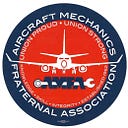The Real Cost Of Southwest Airlines Using Foreign Outsourcing For Heavy Maintenance
Almost exactly two years ago, on February 3, 2017, Southwest Airlines sent a letter to its Aircraft Maintenance Technicians (AMTs) informing them that the company would be “discontinuing heavy maintenance at Aeroman by early summer.” Aeroman is a facility in El Salvador, which the company had used for nearly a decade to service planes — at a reduced cost. The company made clear its intention and had previously agreed to “sunset” a provision in the contract with AMFA, the union representing its AMTs, giving Southwest the ability to outsource a limited amount of heavy maintenance internationally, and would be moving this work back to the U.S.
That intention and agreement remained true until last week. Southwest re-introduced language which would allow foreign outsourcing during contract negotiations with AMFA, and indicated that instead of keeping jobs in America, it would be outsourcing internationally once again. This is not just a contractual sticking point. Foreign outsourcing for heavy maintenance is alarming for several reasons, and affects the flying public as much as the AMT.
AMFA’s first priority is, and always has been, safety. We are on the front lines — and are the last line — of safety for Southwest Airlines. The safety standards at facilities like the one in El Salvador are not up to the level of aircraft maintenance performed by certificated AMT’s in America. There is a precedent of issues from these sorts of international, third party facilities.
This is due to several reasons. AMTs in the U.S. have to be licensed by the FAA, and often have a variety of certifications, making them experts at their craft. Often the workers at these foreign facilities are unlicensed and under-qualified, lacking necessary skills and experience.
Other challenges include a language barrier at facilities like the one in El Salvador, as well as where the FAA oversight comes from. With Aeroman, that oversight came from Dallas — obviously a lengthy distance away from the actual situation on the ground.
This summer, bi-partisan legislation was introduced in Congress to raise awareness for the dangerous trend of outsourcing aircraft maintenance to foreign repair stations. Co-author of the bill, Congressman Donovan said, “No one should ever get on a plane unsure of whether the aircraft they’re boarding has met proper safety standards.”
So why would Southwest be looking for contract “offsets” in order to allow for even more foreign outsourcing? Quite simply — cost. But… at what cost?
We support full transparency in this process, and we continue to hold out hope that negotiations bring the company and the union closer together, instead of further apart. We want a fair contract, that recognizes our expertise and productivity. We want to reach a deal.
Additionally — we have strong affinity for the Southwest Airlines brand of the past, that has been cultivated over time. As the airline expands and grows domestically and outside the continental United States, we want to grow with it. But with the re-introduction of foreign outsourcing by Southwest, that can’t happen.
We hope the airline focuses on American jobs — and on the expertise and productivity AMFA brings to the front line every day.
